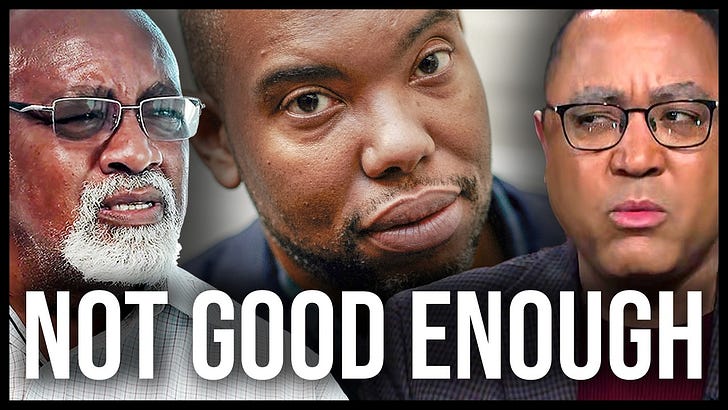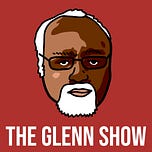This episode of The Glenn Show with John McWhorter is a continuation of our previous episode. In that episode, we talked about Ta-Nehisi Coates’s The Message. But the conversation could only go so far, because John hadn’t yet read the book. Now he’s read it, and we really go at it. We disagree about the book’s value, we disagree about what it’s trying to accomplish, we disagree about its narrative strategies, we disagree about its author’s intentions, we disagree about the political project at its core. We disagree about practically everything, except this: the guy can write one hell of a sentence.
John thinks Coates has a responsibility, as a writer with a big audience, to take a broader historical view of the Israel-Palestine conflict. He believes Coates is imposing his analysis of American race politics—an analysis that John thinks is already overly simplistic—on a situation to which it’s just not applicable. The result, in John’s view, is an insufficient account of a complex situation that ignores the history of the region and Israel’s legitimate concerns for its own security. As you likely know, I see things differently. To me, the book—specifically the last chapter (which is based on his trip to Israel/Palestine, though related themes are broached in an earlier chapter on his visit to Senegal—is Coates’s deeply personal, humanistic account of the myths and narratives that enable both the violent repression of large groups of people and the persistence of those people, whether they be Jews, Palestinians, or anyone else.
This debate is about more than The Message, though. It’s about our divergent attitudes toward the current conflict, and the different frames through which we’ve come to view it. Our disagreement runs deep, but it’s not definitive: our friendship and intellectual partnership are very much intact. We’ll be discussing more books soon—David Greenberg’s John Lewis: A Life and Karen and Barbara Fields’s Racecraft: The Soul of Inequality in American Life.
This post was released on Monday to paying subscribers and is now unlocked. To receive early access to TGS episodes, an ad-free podcast feed, Q&As, and other exclusive content and benefits, click below.
1:22 The Coates debate continues
3:18 John: Coates is a beautiful writer, but …
5:44 John: … The Message is suffused with incuriosity and simplistic thinking
13:45 Glenn: Coates is talking about humanism and power, not race
18:11 Ground News ad
20:25 Is it “all about whitey”?
22:11 Glenn: Ta-Nehisi Coates wrote this book. What am I doing?
27:40 What kind of historical imagination is at work in The Message?
34:11 Moral clarity or abdication of responsibility?
36:30 Pro-Palestinian writers John considers acceptable
41:54 The next entries in Glenn and John’s book club
42:04 Coates’s now notorious interview on CBS Mornings
48:45 What is the black intellectual’s role today?
52:16 The counterexample of South Africa
Recorded October 19, 2024
Links and Readings
Ta-Nehisi Coates’s book, The Message
Glenn and John’s previous conversation
John’s NYT column, “Ta-Nehisi Coates and the Myth of Black Fragility”
Michael Chabon’s novel, The Yiddish Policemen’s Union
Judge Andrew Napolitano on YouTube
Trevor Noah’s conversation with Coates
Ezra Klein’s conversation with Coates
Peter Beinart’s conversation with Coates
David Greenberg’s new book, John Lewis: A Life
Karen and Barbara Fields’s book, Racecraft: The Soul of Inequality in American Life
Glenn’s memoir, Late Admissions: Confessions of a Black Conservative
James Baldwin’s essay, “Letter from a Region in My Mind”














Share this post